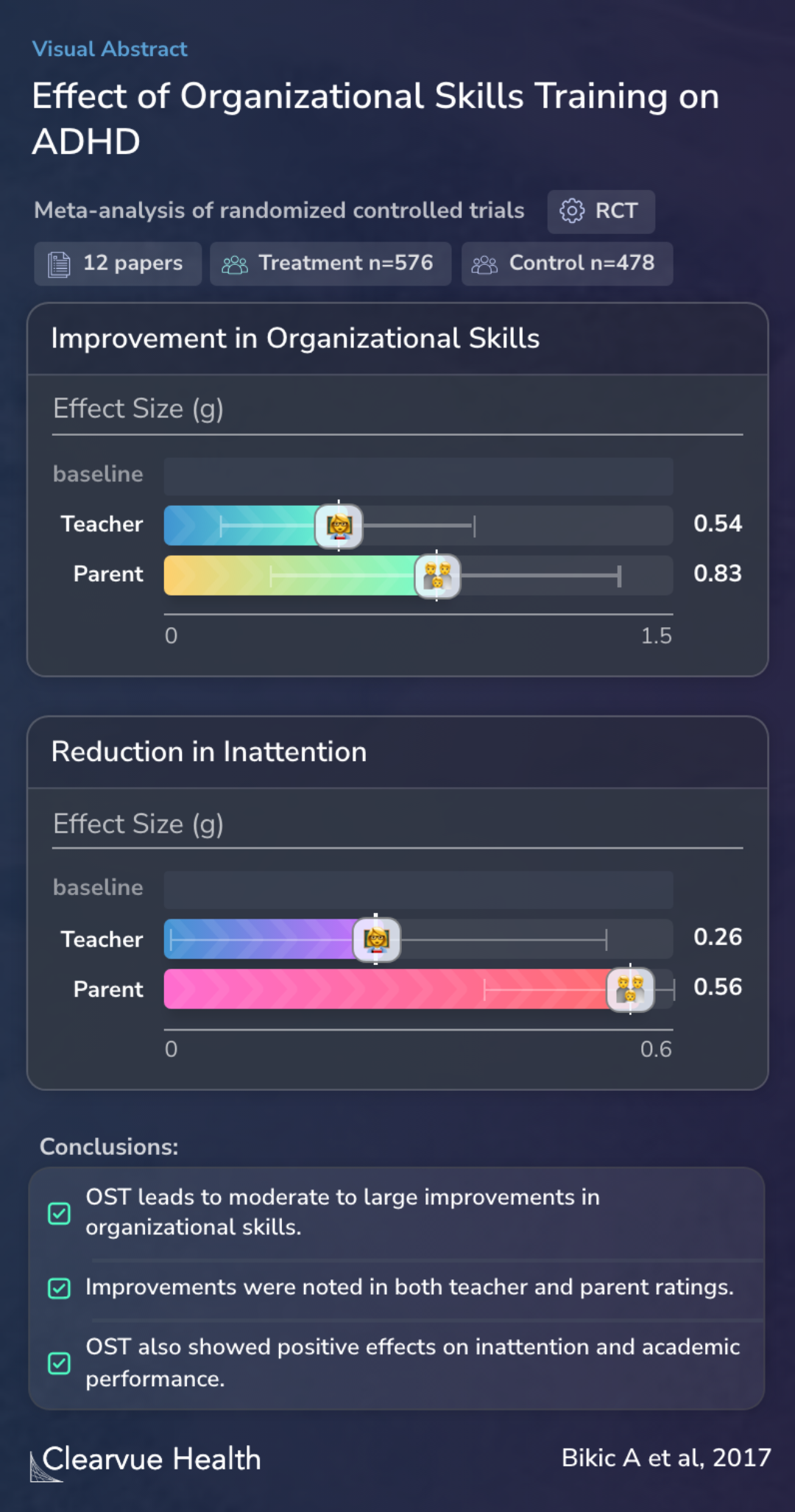Meta-analysis of organizational skills interventions for children and adolescents with Attention-Deficit/Hyperactivity Disorder
Effect of Organizational Skills Training on ADHD
Bikic A, Reichow B, McCauley SA, Ibrahim K, Sukhodolsky DG

Objectives
The study focuses on children with ADHD who struggle with organizing skills needed for school work. The researchers wanted to find out if Organizational Skills Training (OST) helps these kids get better at organizing, paying attention, and doing well in school.
In addition to problems with attention and hyperactivity, children with ADHD present with poor organizational skills required for managing time and materials in academic projects. Organizational skills training (OST) has been increasingly used to address these deficits. The objective of ...
Methods
To answer this question, the researchers looked at many studies where kids with ADHD were either given OST or other treatments like parent education, usual care, or were just put on a waiting list. They compared the results from all these studies to see how much OST helped.
We searched 3 electronic databases to locate randomized controlled trials published in English in peer-reviewed journals comparing OST with parent education, treatment-as-usual, or waitlist control conditions. Standardized mean difference effect sizes from the studies were statistically ...
Results
They found 12 studies with a total of 1,054 kids. The results showed that OST really does help kids with ADHD improve their organizing skills. Parents noticed a bigger improvement than teachers.
OST also helped with reducing attention problems:
Twelve studies involving 1054 children (576 treatment, 478 control) were included in the meta-analyses. Weighted mean effect sizes for teacher- and parent-rated outcome measures of organizational skills were g=0.54 (95% CI 0.17 to 0.91) and g=0.83 (95% CI 0.32 to 1.34), respectively. Wei...
Conclusions
In conclusion, OST makes a real difference in helping kids with ADHD get better at organizing, as noticed by both parents and teachers. While it also helps with paying attention and doing well in school, these improvements are more modest. This shows that OST can be an effective way to help kids with ADHD in their school life.
OST leads to moderate improvements in organizational skills of children with ADHD as rated by teachers and large improvements as rated by parents. More modest improvements were observed on the ratings of symptoms of inattention and academic performance.
Key Takeaways
Context
Another study by Hesslinger and colleagues in 2002 looked at adults with ADHD. They found that a skills training program helped reduce ADHD symptoms and feelings of sadness, and made them feel healthier. This ties in with thestudy above, showing that therapy can help with ADHD at different ages.
Abikoff and colleagues in 2009 studied how Ritalin affects organizing skills in kids with ADHD. They found that while the medication helped, some kids still needed more than just medicine. This links back to the study above, suggesting that treatments like OST might be necessary alongside medication for the best results.